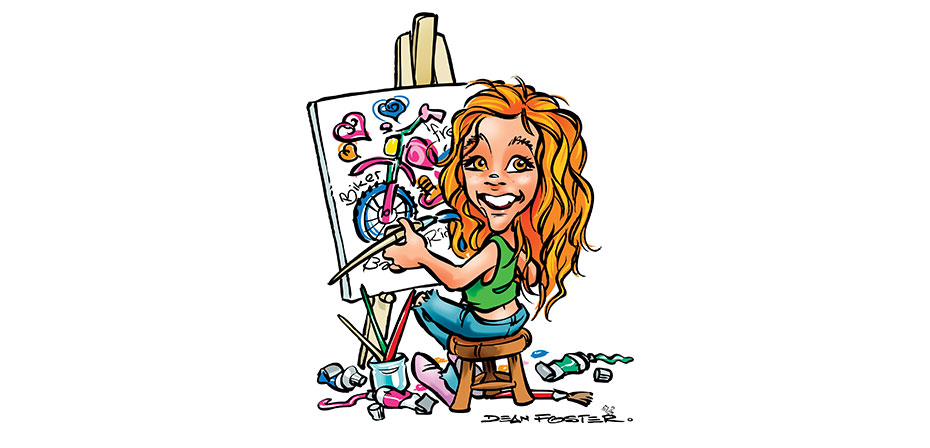Many of you may know of me and are wondering how the powers that be at this magazine could possibly let their crazy daughter write a regular column in this reputable publication.
For my inaugural column, I want to touch on a somewhat somber subject that is likely to affect us all in some way or another throughout our lives. Injuries. They happen, most during times of doing something mundane. Regardless how it happens, it always seems to have the same adverse effects, whether it’s physical, psychological or a combination of the two. People often ask how you’re feeling, and as you repeat your story and daily condition for the umpteenth time, you’re reminded again and again that your life has changed. Instead of riding to clear your head and de-stress, you may find yourself sitting in a garage wondering when you’ll be able to get back on your bike. Your quality of life may deteriorate, taking a toll on your mental health and your outlook on life overall.
I struggled with this downward spiral for years. Five years ago, I had a detrimental snowbike crash that left me with a bad concussion, battered with bruises and a broken shoulder – the broken shoulder would be misdiagnosed for the entire following year. At first, I thought nothing of my injuries. I rode down from the mountain, drove myself to the hospital while shifting my standard transmission with my left hand because I couldn’t move my right arm. At the hospital, only a dislocated shoulder was diagnosed and there was no need for further examination.
During the following months, I dealt with a revolving door of concussion mind tricks: forgetting daily tasks, constant headaches and I was easily aggravated. Luckily, my mind and bruises healed up within a few months. My shoulder, on the other hand, was different.
When riding season neared and I got back on a dirt bike, I began dislocating my shoulder on a daily basis. I had built my life around being active, and now my body was stopping me. My quality of life had deteriorated; I couldn’t sleep and I could barely put on a shirt without dislocating my shoulder joint.
I’d ultimately wait almost two years to get shoulder surgery. Then three months in a sling and six months not able to bear weight. I thought my shoulder would never be the same; I had a war waging in my head on a daily basis about how to continue to live my life.
Throughout those years leading up to and after surgery, I’d consciously force myself to talk about things unrelated to my injury during conversations. Talking about it only seemed to bring back bad memories and my visions of what my future might be like. People would say, “I can’t imagine how you must feel.” In the end, no one can understand how someone feels, whether due to a physical or mental injury or even deteriorating mental health; it’s different for everyone.
My shoulder eventually got better. Talking about it was tough, but in the end talking helped. Whether you participate in formal counselling or just have good friends to talk to about your injury, that can have a huge positive impact on your mental health. I also picked up new hobbies. I began gardening, painting and knitting to keep me busy. Now, two years after my surgery, my life is pretty well back to normal and, of course, I’m riding anything I can get my hands on. I still get upset about the time I lost, but thinking of that does me no good. Things got better – and that’s what matters.
Putting yourself down when you’re injured is easy to do, especially if you compare your injuries with those of others and feel like you don’t have the right to be upset because there’s always someone worse off.
Being upset about an injury is normal, and working through those emotions can help you in the long run. Remaining negative with yourself and your body will inhibit your healing. In the end, even if an injury lasts a lifetime, you can’t expect to spend the entirety of your life fixated on the one moment that changed everything.
If you are injured – no matter the level of severity or if it’s physical or mental – reach out to someone. Or if you know someone who is struggling with an injury, please reach out to them. Bring up subjects that get their mind off the hardships at hand. Understand that being upset or angry is okay, and although your quality of life may not be the same, it doesn’t have to be bad – it just may be different.










